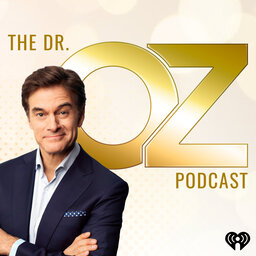Julian Whitaker of the Whitaker Wellness Institute sits down with Dr. Oz to talk about the right way to eat in order to avoid what is being considered an epidemic in this country: Diabetes. Julian also reveals which fats can help people actually lose weight, and how knocking certain starches out of our diet can prevent illness and obesity.
Learn more about your ad-choices at https://www.iheartpodcastnetwork.com
 AMERICA'S DOCTOR: The Dr. Oz Podcast
AMERICA'S DOCTOR: The Dr. Oz Podcast


